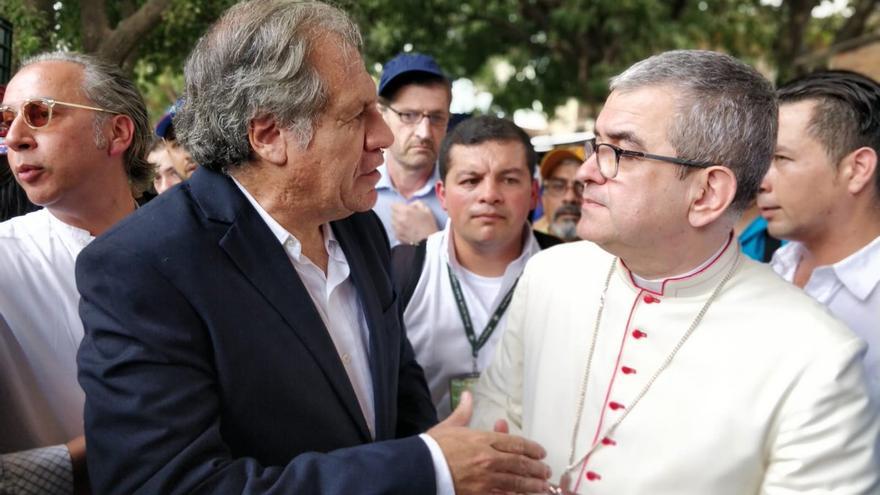
![]() 14ymedio, Carlos Malamud, Madrid | 17 September 2018 — The statements of the secretary general of the Organization of American States (OEA), Luis Almagro, went around the world and caused a great scandal both internally and externally. On the Colombian-Venezuelan border, ground zero of a migratory catastrophe turned into a regional drama, Almagro was asked about a possible intervention. His response, blunt and without room for subsequent nuances, was the cornerstone of the scandal: “As for a military intervention to overthrow the regime of Nicolás Maduro I believe that we should not discard any option.”
14ymedio, Carlos Malamud, Madrid | 17 September 2018 — The statements of the secretary general of the Organization of American States (OEA), Luis Almagro, went around the world and caused a great scandal both internally and externally. On the Colombian-Venezuelan border, ground zero of a migratory catastrophe turned into a regional drama, Almagro was asked about a possible intervention. His response, blunt and without room for subsequent nuances, was the cornerstone of the scandal: “As for a military intervention to overthrow the regime of Nicolás Maduro I believe that we should not discard any option.”
The enemy camp felt his words to be an open provocation and accused him of subordinating himself to the plans of the United States. Venezuelan Vice President Delcy Rodríguez said that he was looking to revive the “worst measures” of “imperialist” military interferences in Latin America and even announced a complaint in the UN for “promoting a military action.”
The Chavista accusation against US imperialism is paradoxical considering Venezuela has just sold its soul in oil to Xi Jinping. This way, China will intervene to “finance development” and also to influence “the form of governing this country.” Even if, as Maduro reminded us, the biggest difference from Yankee imperialism is that China wants a future “without hegemonic rule that blackmails and dominates.” And if he says it, you have to believe him.
The bewilderment among the sectors most critical of the Venezuelan regime was great. Eleven of the fourteen countries of the Lima Group rejected any military intervention in Venezuelan territory. There were also those who branded Almagro’s words as undiplomatic. It’s true, his statements were not an exercise in subtlety, nor do they allow the possibility of keeping open negotiations, neither regional nor multilateral.
However, the diplomatic option was closed a while ago, and not by the international community, but rather by the constant insults and declarations of a regime that refuses to negotiate both inside and outside of its borders. The imposition of an unconstitutional Constituent Assembly or the aggressive conduct of Delcy Rodríguez when she was the Minister of the Exterior and triedto firce herway into a meeting in Buenos Aires where the suspension of her country from Mercosur was being discussed and to which she had not been invited, are only a few examples.
Almagro could not be diplomatic where there was no space for diplomacy. Nor did he encourage, as his critics claim, a military intervention, but only said that it could not be discarded. Venezuela is at a dead end. No short-, medium-, or long-term solution is in sight. The most complete catastrophe has installed itself in the country and not even Chinese patience can solve it.
In the current conditions it is difficult for anyone to promote or sustain an external intervention. From within is another thing, but here it seems complicated, given the Cuban infiltration in the military and the complicity of its chiefs with the regime. In reality they are the regime. The civic-military alliance is by now more military than civilian and it is the heaviest legacy of Hugo Chávez. This, along with his supposed “Bolivarian Revolution,” was the path chosen to destroy Venezuela.
Translated by: Sheilagh Carey
____________________________
The 14ymedio team is committed to serious journalism that reflects the reality of deep Cuba. Thank you for joining us on this long road. We invite you to continue supporting us, but this time by becoming a member of 14ymedio. Together we can continue to transform journalism in Cuba.
